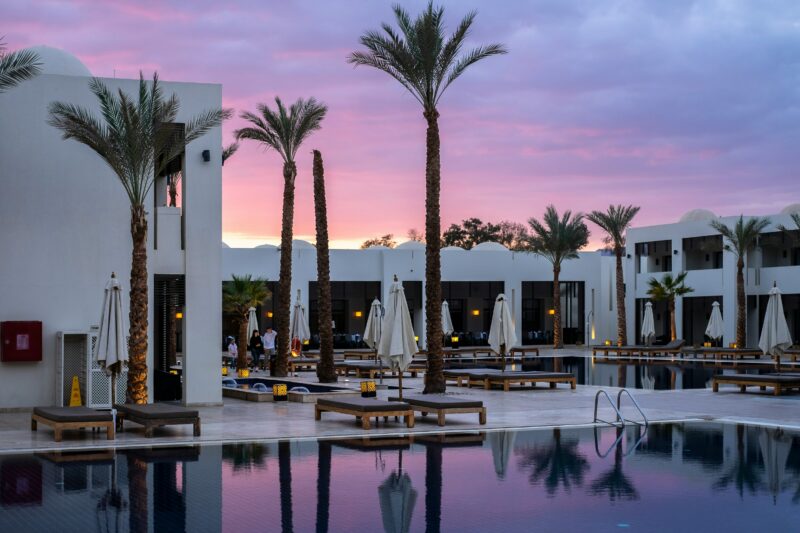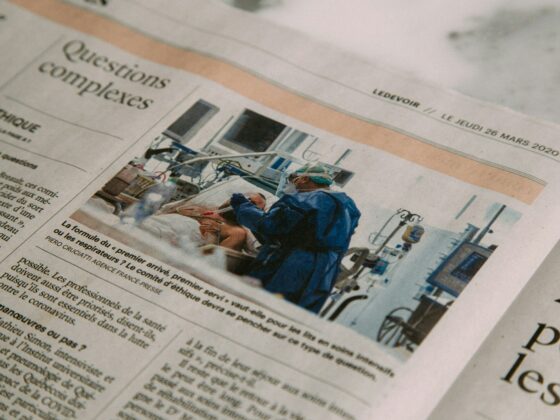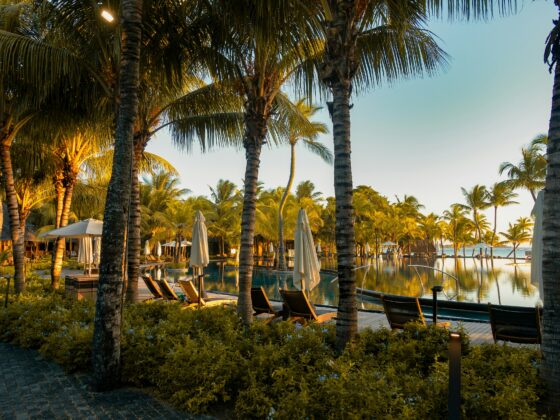Josiah:
Everyone in hospitality says that people matter, but frankly, this too often feels like a tagline and doesn’t really end up making a big difference in the day-to-day reality for those who are working on the front lines. How can we move beyond feel-good phrases to really truly care for the people who work on our teams? Today, we’re learning from someone who’s among the most thoughtful leaders I’ve met about how to do this practically. Anthony Pellegrino is the head of hotels at Ash, an award-winning designer, developer, owner and operator of hotels from Detroit to Providence, Rhode Island. In this episode, you’ll learn why hospitality leadership is all about serving the people working with you in providing hospitality. And here’s some specific ways that Anthony does that, from the design and development of hotels to how he spends time visiting each property. Stick around if you want to care for people in a way that moves beyond just lip service.
Josiah: Tell us a little bit about your role today and what that covers.
Anthony:
Yeah, it’s a really fancy title, right, head of hotels, which I’m glad to have and I’m proud to have, and I’m proud to have been at the early days of Ash when we decided to take on hotels. Really, what that means is I’m an ops guy. I’m through and through an ops and I touch every aspect of it, from the development side to the design side, to the pre-opening side, from the new builds and transitions to everyday operations. So that’s really where it falls. So a lot of times the culture that we build on property really falls into me and the culture that we built before or as we’re building a property. I always say I’m the guy, I don’t design anything, but I want to know if the bed’s going to be this high or no high, right? I want to really understand the efficiencies in which folks can work and how their day goes. So nothing too fancy, but it’s important, I think, to the company.
Josiah:
I feel operations is so important. It’s one of those things that sometimes gets overlooked because there’s everything from technology to a lot of important parts of the hospitality ecosystem. But tell us a little bit about why you call yourself an ops guy. Why does operations matter so much in hospitality?
Anthony:
It’s people, right? Service to others to me, is the most important thing in life and I think that’s why operations are important. I know we service our guests right. We’re serving other human beings and we’re being kind, caring, and thoughtful about how we treat them and the money that they spend on our products. But we’re also thinking about the people we work with on a day-to-day basis. I think that’s again kind, caring, and thoughtful about people in and outside of work, how they get to work, what their work day looks like when they’re here, what they’re faced with when they’re here. And that also ties into your vendors, right? Those are relationships as well that you build over time. So I think you’re constantly in service to others and I think that’s why operations, beyond any efficiencies or any technology, leveraging the piece to it is we’re a people business.
Josiah:
Everybody says we’re a people business. They say that people matter, but I want to unpack this a little bit. Where do you feel like people in the hospitality industry go wrong with regards to people and with regards to the people working…. everyone pays lip service to this, but what have you seen? Where people are missing the mark?
Anthony:
I do think we blow smoke right Like we get caught up in it and you just have to be genuine and I think that’s where it comes down to right? When it’s bigger, faster, or better and we’re talking about AI or anything else like that, that’s where we go wrong. We need to be thinking about like. When I was talking earlier about efficiencies, I used to joke with the design team I’d be like build the hotel for housekeeping. They didn’t really understand what I meant. I was like when you’re building something efficient, we can now make money. When we’re building something efficient, someone’s day is easier to come in and do their work and do their work the way that you know is expected. I think that’s one of the pieces where we get it wrong in hotels. We’re thinking about the end user, we’re thinking about our own egos and some mental masturbation right, but if we’re truly thinking about how people work in those buildings, that’s one of the first places we go wrong. And it’s not just about efficiencies, it’s about the welcome, how people come in, how they experience the brand and what you’re creating. I think that’s a big piece. We’ll obviously pay and benefits and really I would say the Dean Hotel is our first hotel that help the medical benefits people. As to this company, when you hear when people say your employees are your most important, you take care of your employees, they take care of your guests, and all those taglines and catchy phrases, it’s true. You have to back it up, it has to be done. And I die on that hill. I’ve got a blue-collar stain bigger than most.
Josiah:
Let’s unpack that a little bit because, as you said, it’s a lot of taglines, people saying this. I’m curious how you personally stay close to the needs of the people that you’re serving, and I love this notion of what you said build the hotel for housekeeping. How do you stay close to the needs of the housekeepers in this example?
Anthony:
So the other folks, even before Ash, you have the bigger hotels and employee cafeterias and whatnot. To me, no one was allowed to eat before housekeeping, and housekeeping always went down first and I would go eat with them, and I still do. Now. It’s a little bit different in the boutique sector, but when I come to town it’s housekeeping I take out to the restaurant down the street. It’s housekeeping that I order with. When I see a new car in the parking lot, I don’t know whose it is I want to celebrate that and it really is just understanding people. I want to say kind, caring and thoughtful. I need to be thoughtful. I need to ask about their day. When I came to the Siren, which I am here in Detroit, which is the city I love, and not just because there’s a hotel here. It is one of the great American cities. But the first thing I did is when I went to housekeeping I was like what’s going on? And I got exactly what’s going on because they know me and there’s a relationship there and they don’t have to be on edge because I’m in here. They don’t have to give me lip service or anything. I have an honest relationship. So relationships are built right. Trust and respect are earned, and those are things I think you get when you spend time with people and you break bread with people. I always joke. When people laugh, I always say I’m just a kid from the kitchen from the age of 19 to the age of 33. I was in the kitchen and I will tell you it’s those steps and those years that formed my thinking about humanity, if you will, and how people should be treated and how to understand and that’s how, really, where my emotional intelligence started, so understanding that I could be a kid in the kitchen and maybe a late-bloomer years later. I’m running a hotel company, but nonetheless, I think that’s why I love hospitality and that’s why I love the people in hospitality and I love what it offers, and I demand more from hospitality as a whole on behalf of those people.







